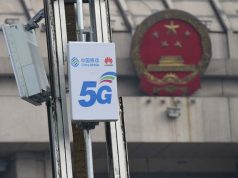
A study by a cybersecurity company discovered how at least one in five people compared not having connectivity on their devices to being naked in public.
Cybersecurity company Kaspersky released its findings about people’s dependence on connectivity and their devices. It found that one in five or 22 percent of people considered connectivity as a basic need and that 23 percent would prefer to be caught naked in public rather than not have a connected device with them.
The study also found that at least one in ten people will make sure to have their phones on them all the time during activities such as eating, sleeping and taking trips to the toilet.
Relationships were the reason for the respondents’ attachment to their devices as the study found. 51 percent answered that not having a connected device would make their loved ones worry while 45 percent explained that not having a connected device would mean they would not be able to help if something happened to their loved ones.
Kaspersky’s social experiment involving a naked stranger lost in the middle of a city shows how lost one can be without a device or any connection.
The smart phone revolution led humans to become more reliant on their mobile devices to utilize the innovations brought about by the internet and connectivity.
Aside from the usual social media and messaging apps necessary for communication, essentials such as navigation, transport, entertainment and financial planning have been made easier by connectivity in mobile devices.
Buzzfeed released in 2015 a web series challenging people not to use their smartphones. Many of the respondents related immediately having trouble as the challenge caused not just boredom but also trouble contacting their loved ones.
Connectivity in the world today
Studies show that there at least 2.53 billion smartphone users in the world as of 2018. The number is expected to grow to at least 2.87 billion by 2020.
On one hand, close to 4.2 billion people or 54.4 percent of the world’s population use the internet as of December 2017.
Some studies suggest connectivity is a driving factor in the economies of the world’s most developed countries. The Global Connectivity Index prepared by mobile company Huawei explains how developed countries such as the United States, Singapore and Sweden are positively impacted by strong connectivity.









